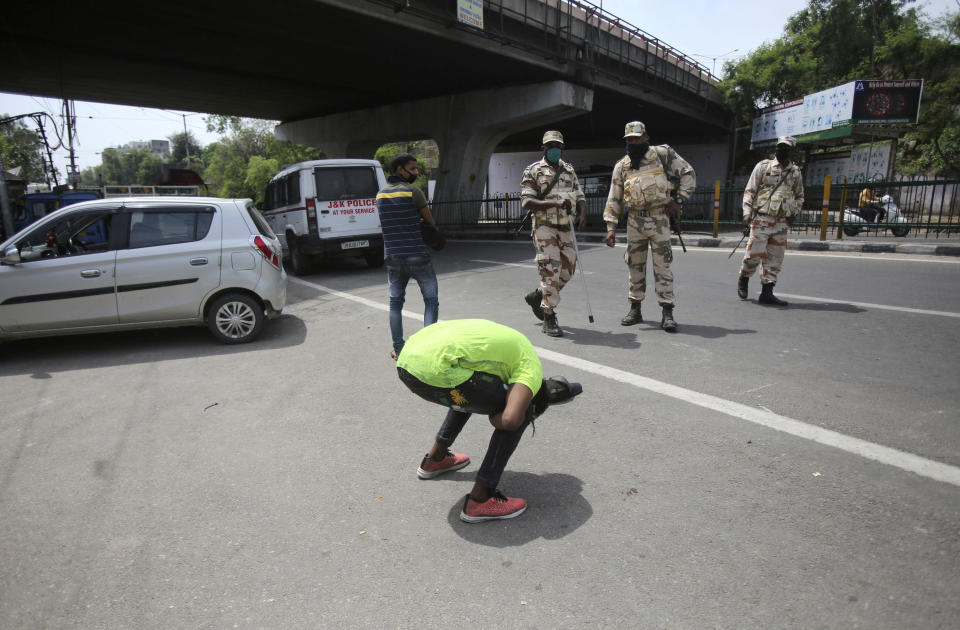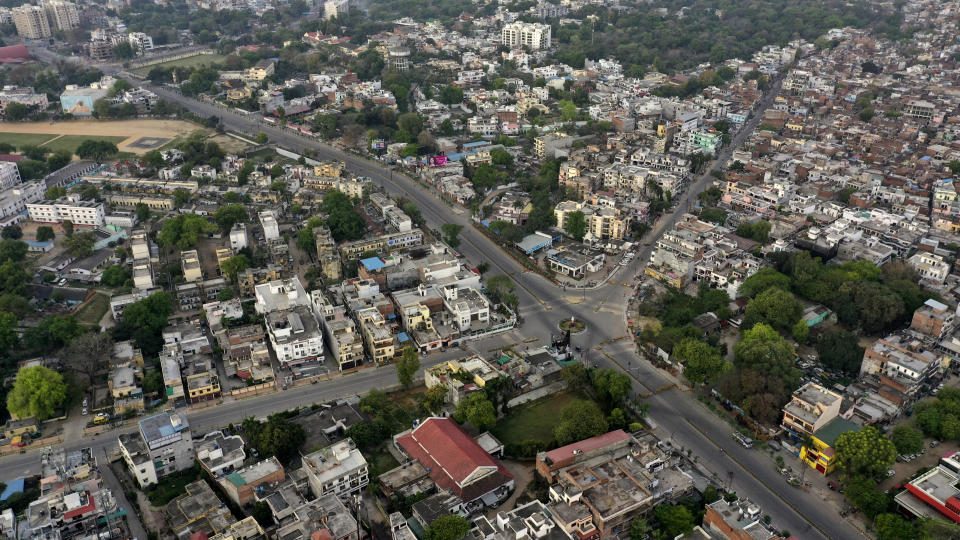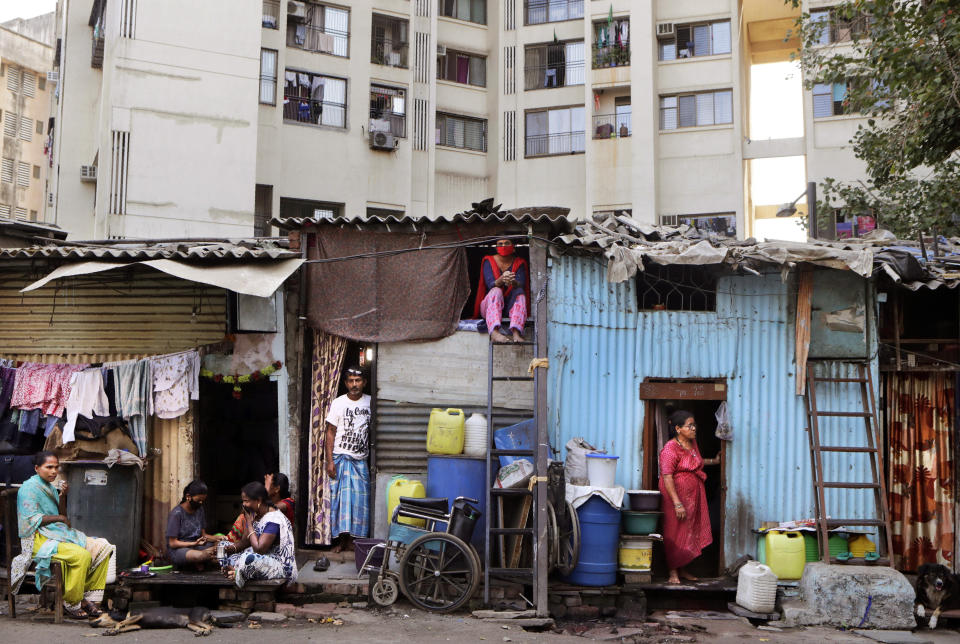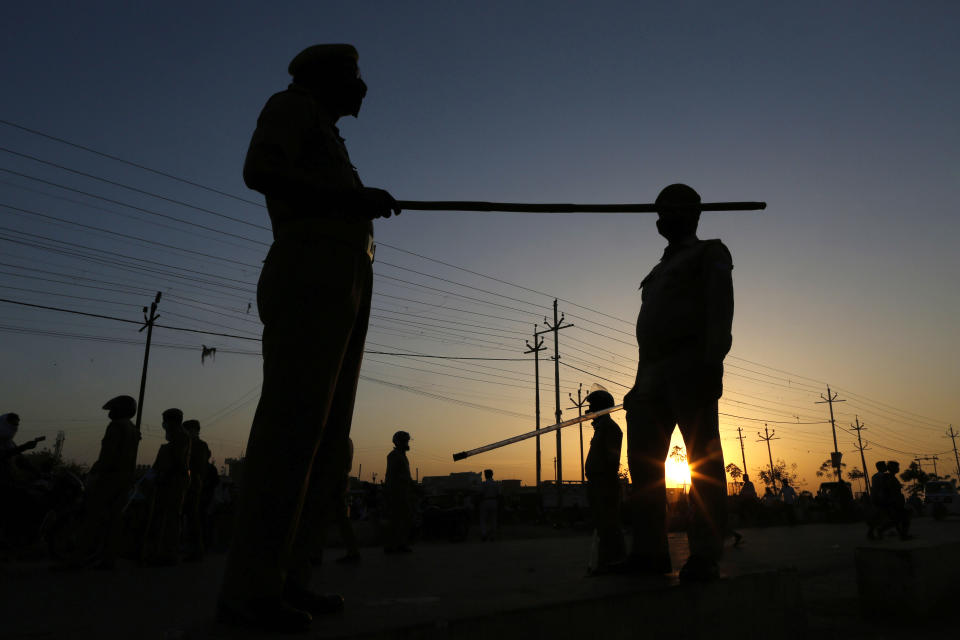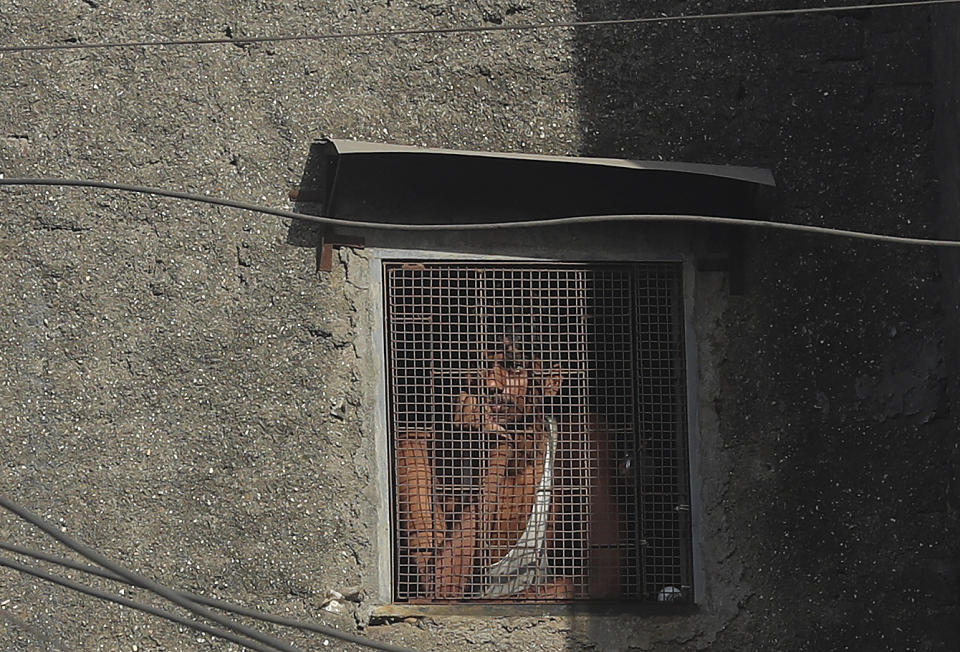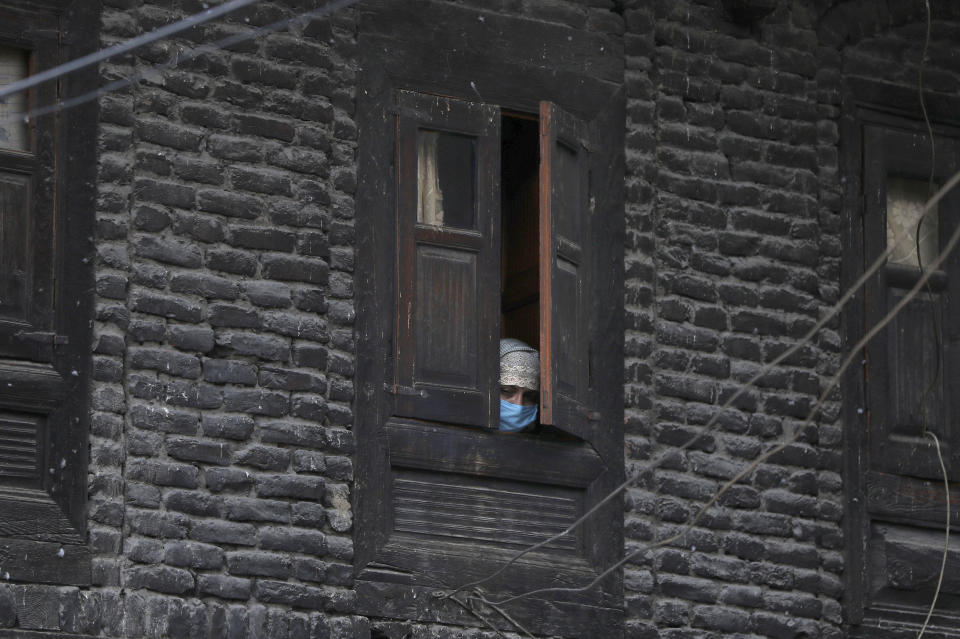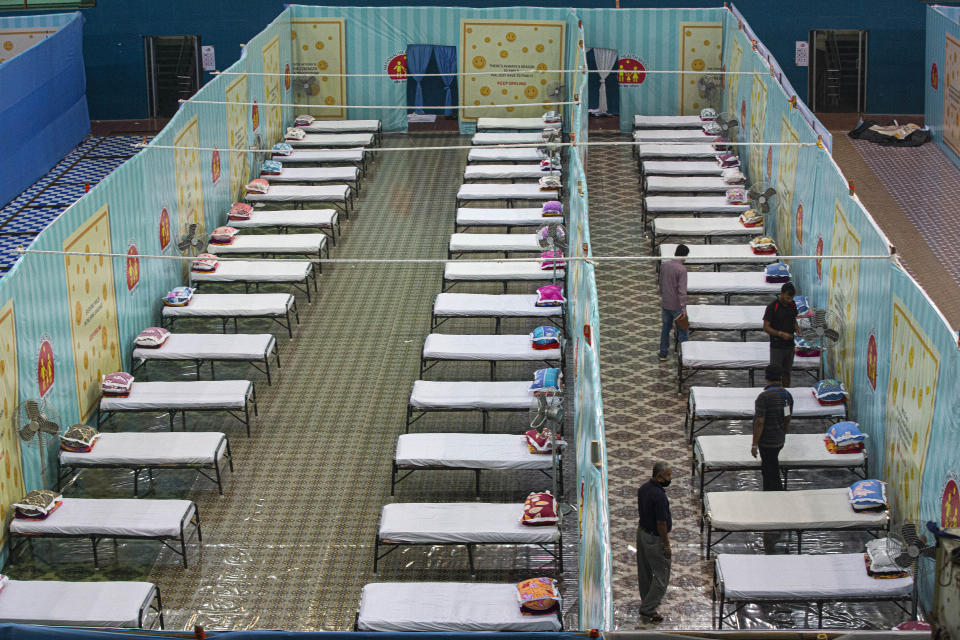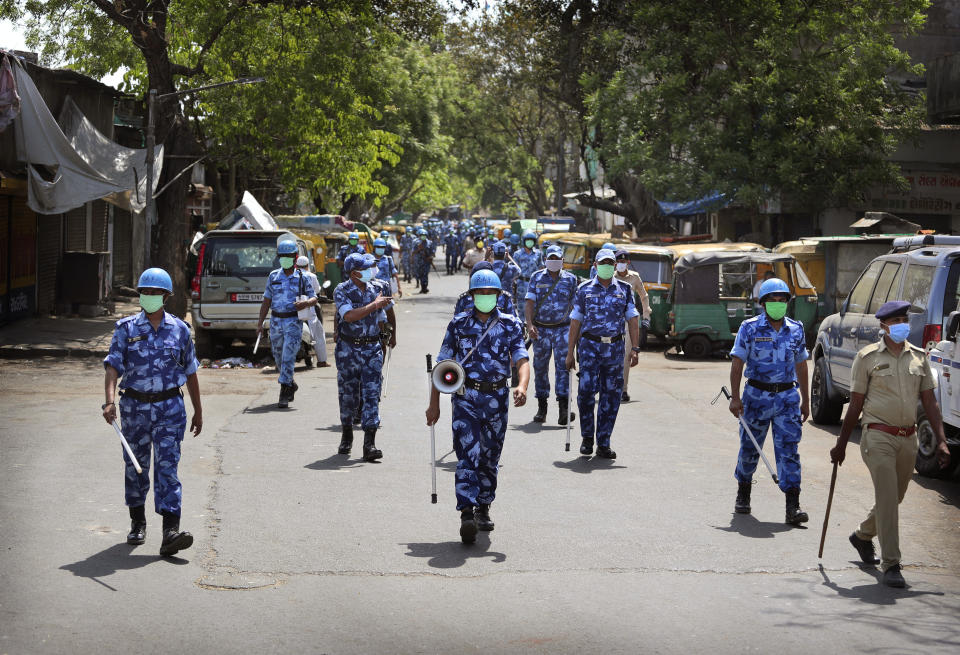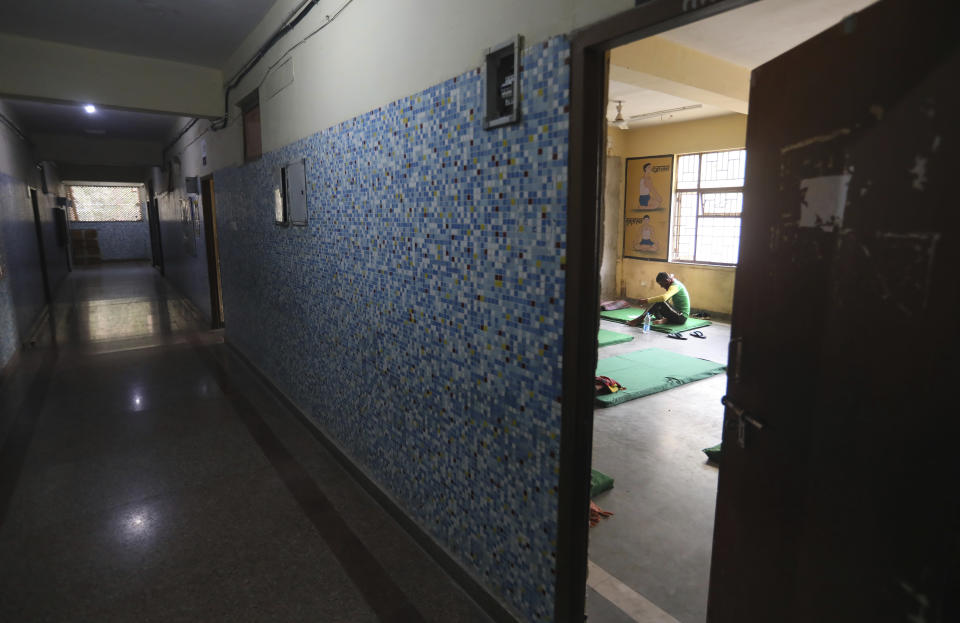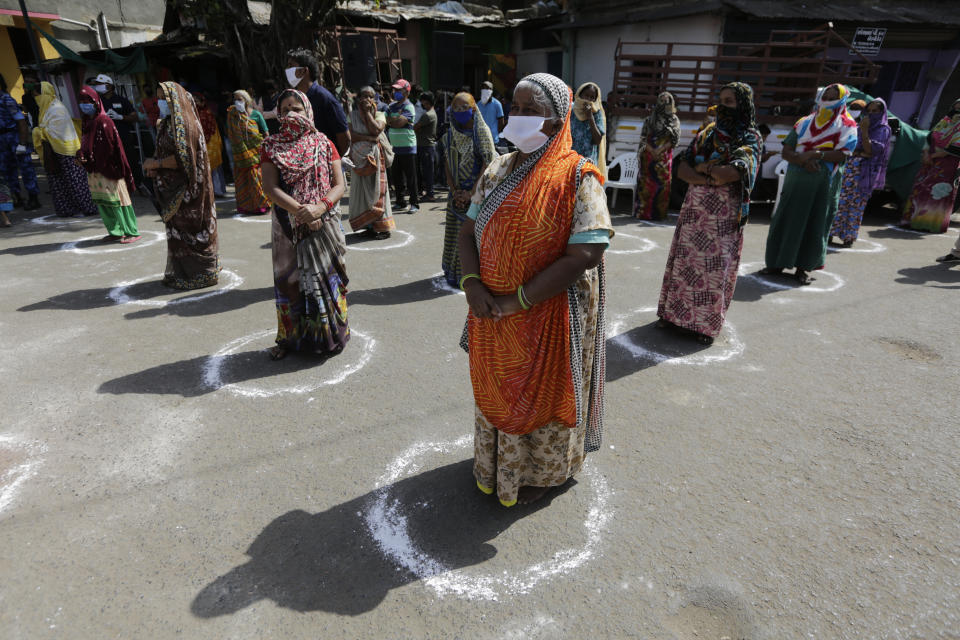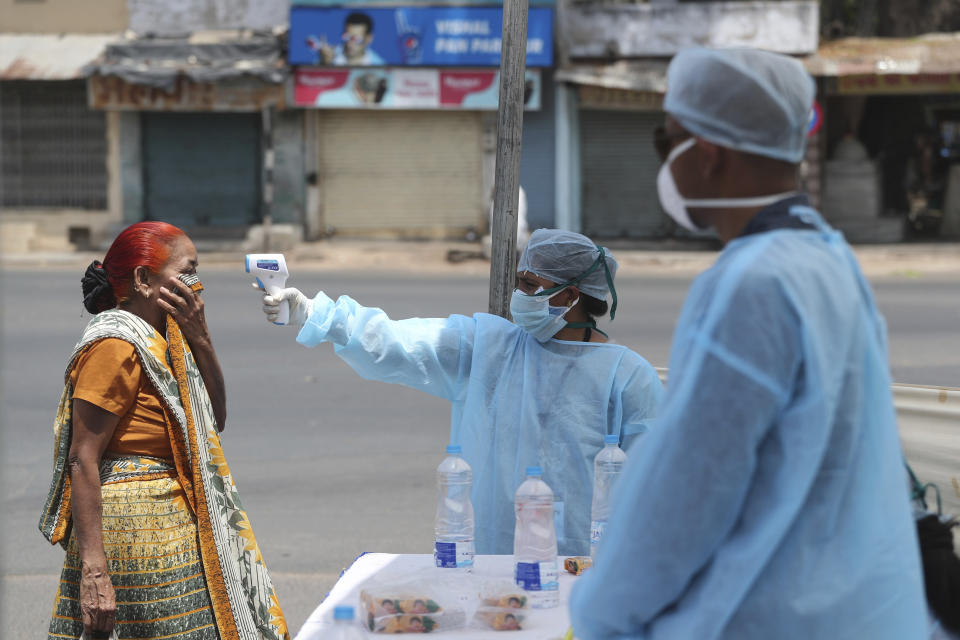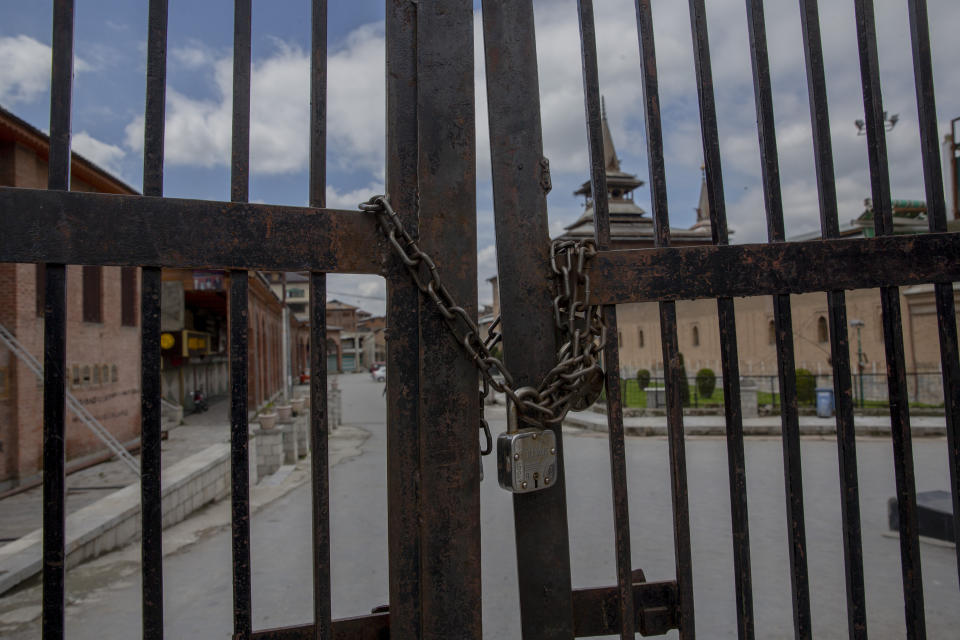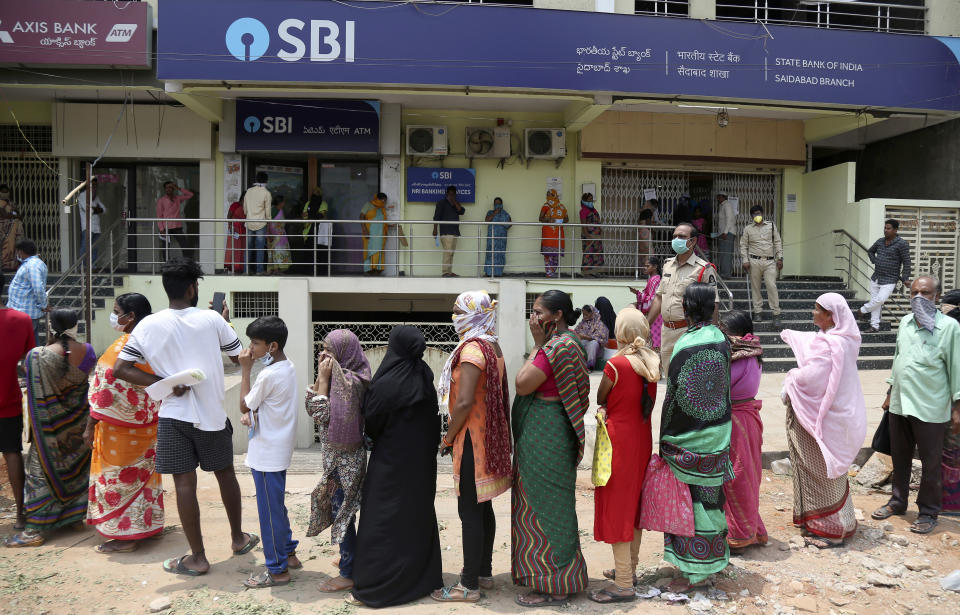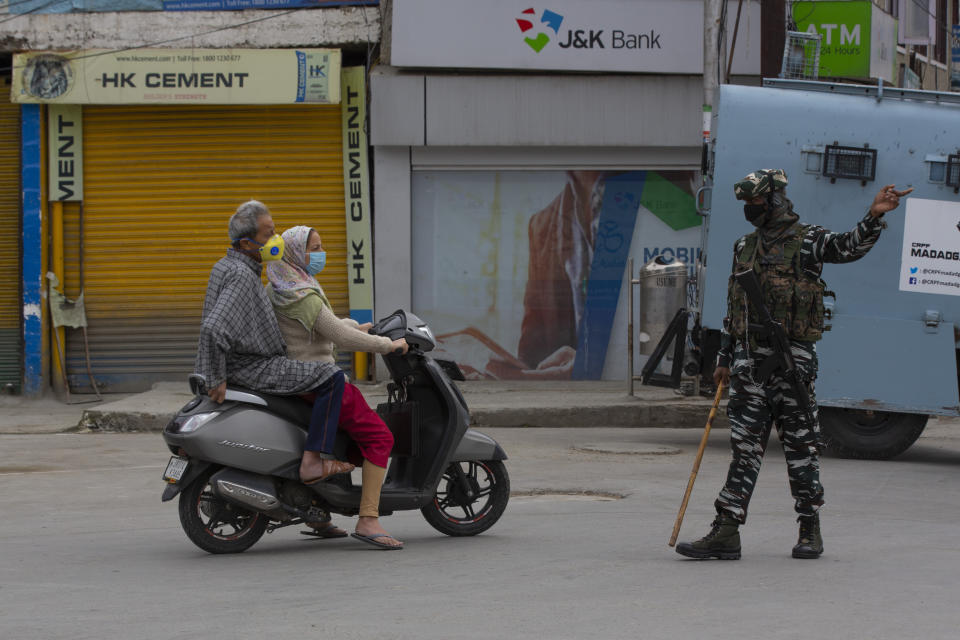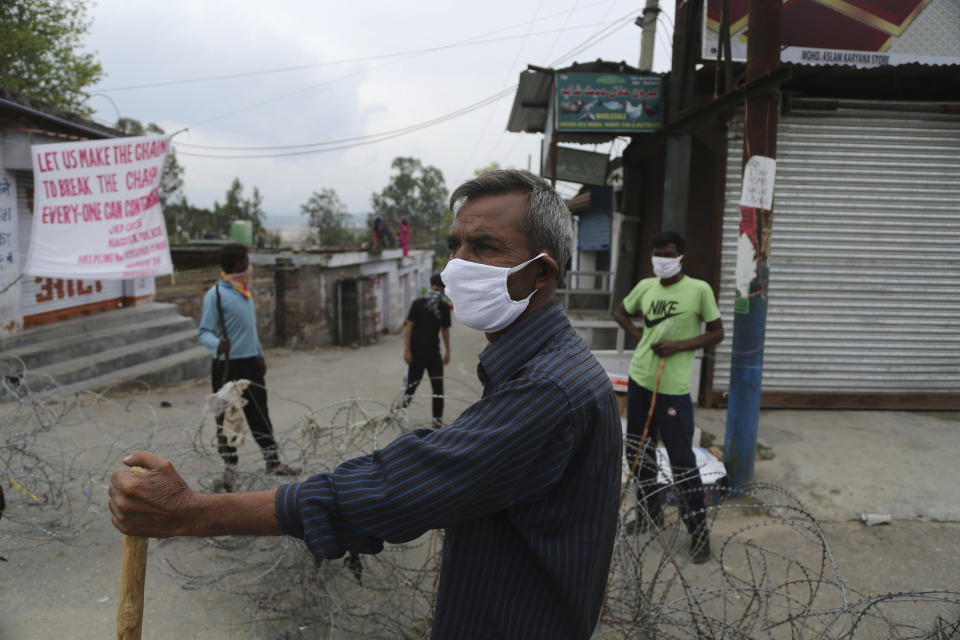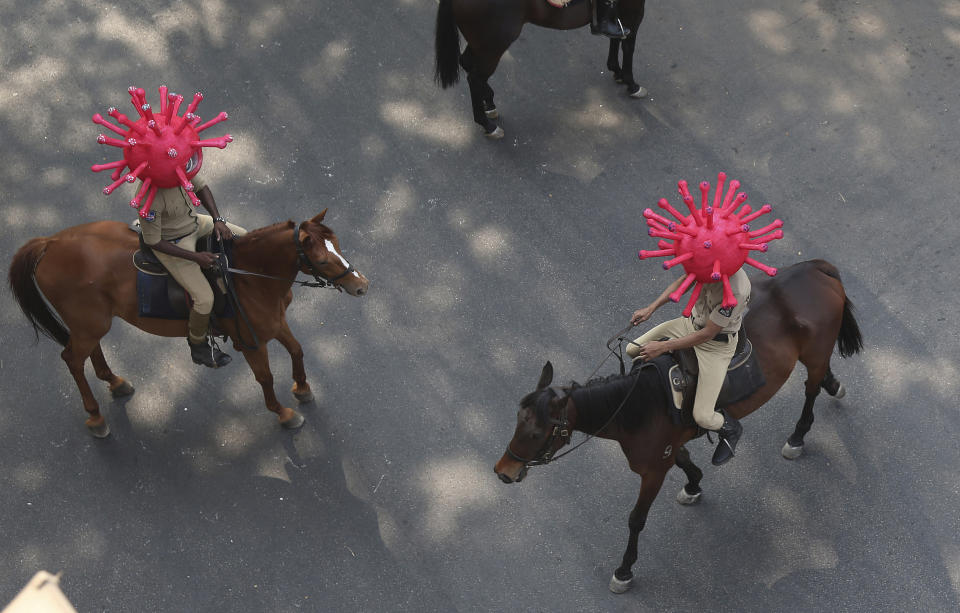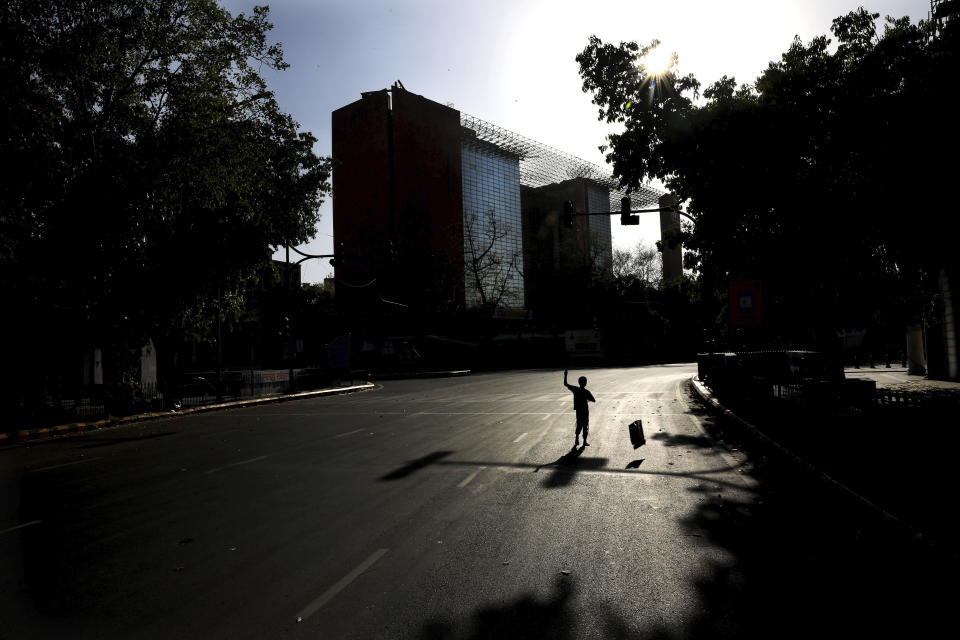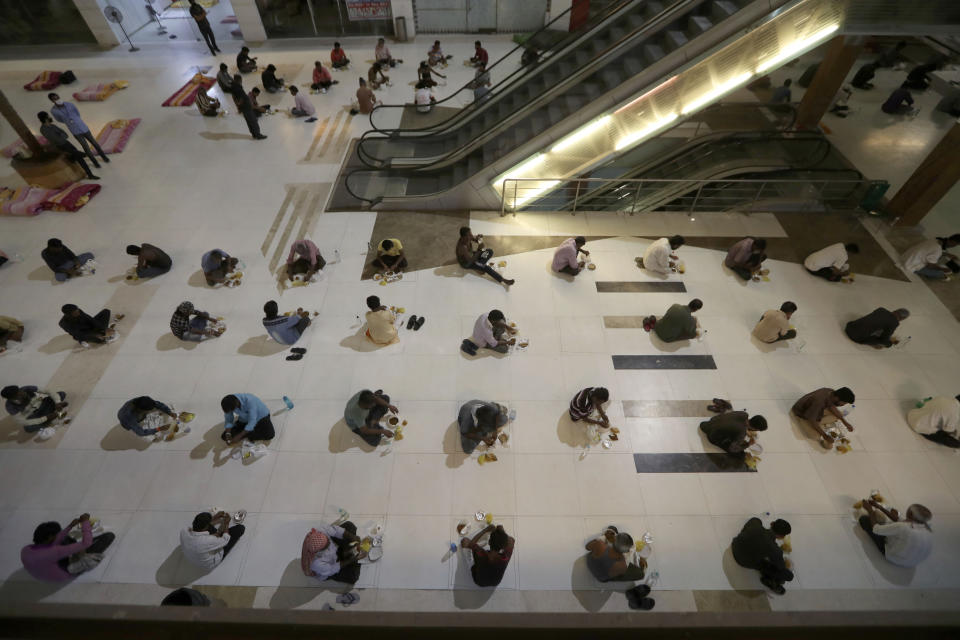AP PHOTOS: India's virus lockdown slows the usual bustle
NEW DELHI (AP) — Highways that once pulsated with traffic are eerily silent. Big cities normally filled with dense crowds are wide open, with public spaces out of bounds. Those hunkered down at home peer out from their windows and balconies, while police patrol the streets.
India, a bustling country of 1.3 billion people, has slowed to an uncharacteristic crawl, transforming ordinary scenes of daily life into a surreal landscape.
The nation is now under what has been described as the world’s biggest lockdown, aimed at keeping the coronavirus from spreading and overwhelming India's enfeebled health care system.
Health officials have confirmed more than 9,100 cases of the virus, including at least 308 deaths.
The hastily announced lockdown that started on March 25 has left millions out of work, disrupted big and small businesses, and forced an exodus of hungry and jobless migrant workers from the cities who had to walk hundreds of miles to their native villages.
Untold numbers are now out of work, and many families have been left struggling to eat. Everything but essential services are shuttered. Trains and air travel remain suspended.
Authorities have identified and sealed dozens of residential neighborhoods in New Delhi, India's capital, and other parts of the country to check the rising virus cases. Authorities in many states have also made it compulsory for people to wear face masks when stepping outdoors.
Some neighborhoods have taken it upon themselves to set up checkpoints and makeshift barricades, prepared to turn away those who they suspect had traveled from infected zones.
The three-week lockdown expires on Tuesday, but many states have already extended it until April 30. Prime Minister Narendra Modi is expected to announce details of the second phase on Tuesday.
The next phase of the lockdown is expected to be more relaxed, with authorities considering resuming some manufacturing and services with restrictions to kick-start the struggling economy and avoid more job losses.
